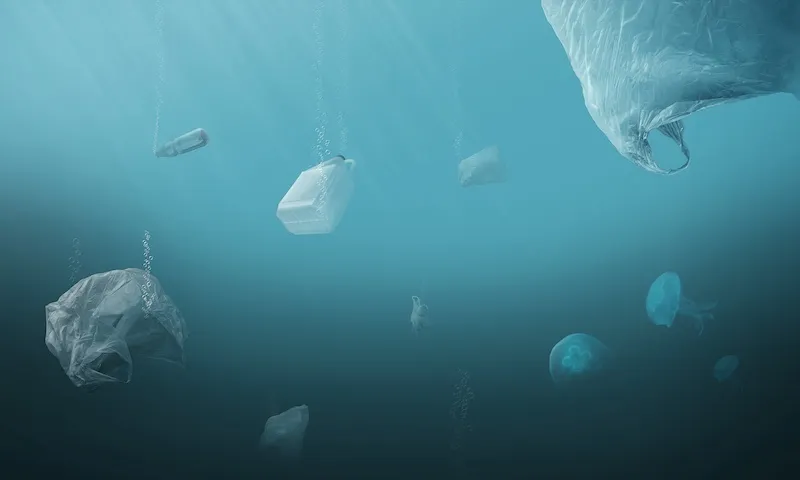
The inception impact assessment of the reopening of REACH
Published on 4th May, the European Commission's inception impact assessment on the reopening of the REACH Regulation analyses the possible effects of these changes on the economy, the environment and society. Inception impact assessments replace the usual roadmaps for large-scale projects.
The main points of this impact assessment are as follows:
Firstly, a review of registration requirements: new information could be requested, and the registration of certain polymers is also on the table. Secondly, communication in the supply chain is to be simplified. A standardised electronic format is envisaged for Safety Data Sheets (SDS).
In addition, the process of restricting chemicals should also be adapted to provide better protection for consumers and the environment. Various options are being considered in this respect, such as extending the generic risk approach to more substances and products, or introducing the concept of essential use for restrictions.
Finally, the authorisation process of the REACH regulation is also being questioned. The main reason given is that the process is so rigid that it generates, in some cases, endless discussions that do not allow a decision to be taken.
The issue of upstream dossiers is put forward, which confirms that a downstream approach, or at least an approach focusing on a limited number of applicants, is more adapted to ECHA's current expectations.
Various options are being considered to improve the authorisation process. These include, for example, simplification and clarification of the current provisions establishing national authorisations for smaller applications, integrating the authorisation and restriction processes into a single package that would allow better interaction with other legislation, etc.
The reopening of REACH: a major project?
The European Commission has published a chemicals strategy, endorsed by the Council of the Union. The chemicals strategy is part of the new European Green Deal presented by the Commission, the Council, the Economic and Social Committee and the Committee of the Regions. The official aim is to ensure better protection of human health and the environment from hazardous chemicals, to foster innovation and the transition to safe and sustainable chemicals.
The European Commission's Chemicals Strategy should lead to a reopening and updating of the REACH (Registration, Evaluation and Authorisation of Chemicals) Regulation.
As things stand, nothing has been definitively agreed upon. However, one main element is at the centre of all discussions: the Commission's new motto, �One substance, one assessment�. Until now, different agencies could assess the same substance under different regulations, which can be problematic, both in terms of the efficiency of the assessment and the pressure on companies to comply.
As part of this action plan, other regulations could be reopened: the CLP Regulation, for example, could be amended with the introduction of new hazard classifications and obligations. The cosmetics regulation could also be subject to a reopening to add environmental endpoints.
Wish to know more about the REACH regulation?

For more information, do not hesitate to contact Fang Zhou or one of our experts!
The inception impact assessment of the reopening of REACH
Published on 4th May, the European Commission's inception impact assessment on the reopening of the REACH Regulation analyses the possible effects of these changes on the economy, the environment and society. Inception impact assessments replace the usual roadmaps for large-scale projects.
The main points of this impact assessment are as follows:
Firstly, a review of registration requirements: new information could be requested, and the registration of certain polymers is also on the table. Secondly, communication in the supply chain is to be simplified. A standardised electronic format is envisaged for Safety Data Sheets (SDS).
In addition, the process of restricting chemicals should also be adapted to provide better protection for consumers and the environment. Various options are being considered in this respect, such as extending the generic risk approach to more substances and products, or introducing the concept of essential use for restrictions.
Finally, the authorisation process of the REACH regulation is also being questioned. The main reason given is that the process is so rigid that it generates, in some cases, endless discussions that do not allow a decision to be taken.
The issue of upstream dossiers is put forward, which confirms that a downstream approach, or at least an approach focusing on a limited number of applicants, is more adapted to ECHA's current expectations.
Various options are being considered to improve the authorisation process. These include, for example, simplification and clarification of the current provisions establishing national authorisations for smaller applications, integrating the authorisation and restriction processes into a single package that would allow better interaction with other legislation, etc.
The reopening of REACH: a major project?
The European Commission has published a chemicals strategy, endorsed by the Council of the Union. The chemicals strategy is part of the new European Green Deal presented by the Commission, the Council, the Economic and Social Committee and the Committee of the Regions. The official aim is to ensure better protection of human health and the environment from hazardous chemicals, to foster innovation and the transition to safe and sustainable chemicals.
The European Commission's Chemicals Strategy should lead to a reopening and updating of the REACH (Registration, Evaluation and Authorisation of Chemicals) Regulation.
As things stand, nothing has been definitively agreed upon. However, one main element is at the centre of all discussions: the Commission's new motto, �One substance, one assessment�. Until now, different agencies could assess the same substance under different regulations, which can be problematic, both in terms of the efficiency of the assessment and the pressure on companies to comply.
As part of this action plan, other regulations could be reopened: the CLP Regulation, for example, could be amended with the introduction of new hazard classifications and obligations. The cosmetics regulation could also be subject to a reopening to add environmental endpoints.
Wish to know more about the REACH regulation?

For more information, do not hesitate to contact Fang Zhou or one of our experts!







